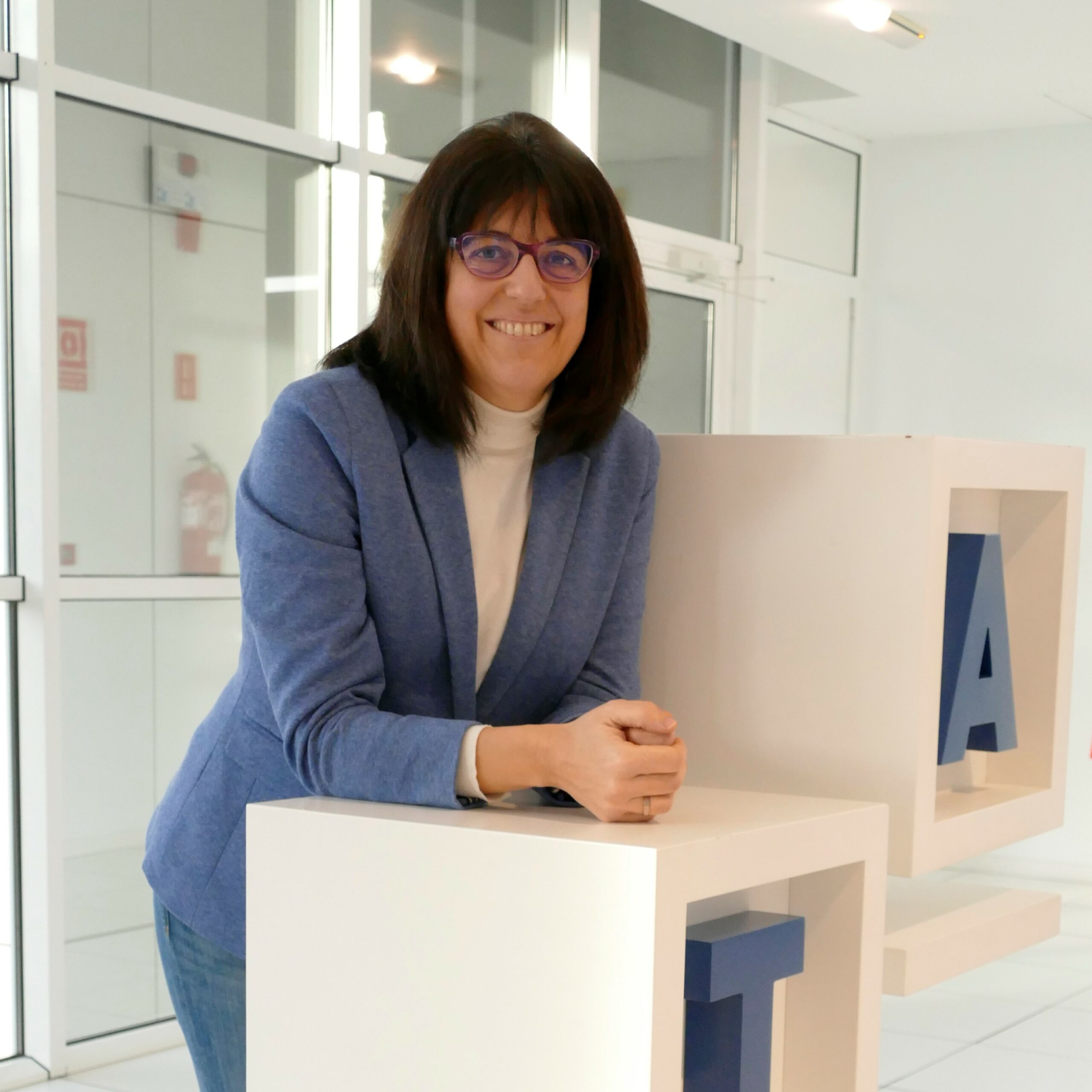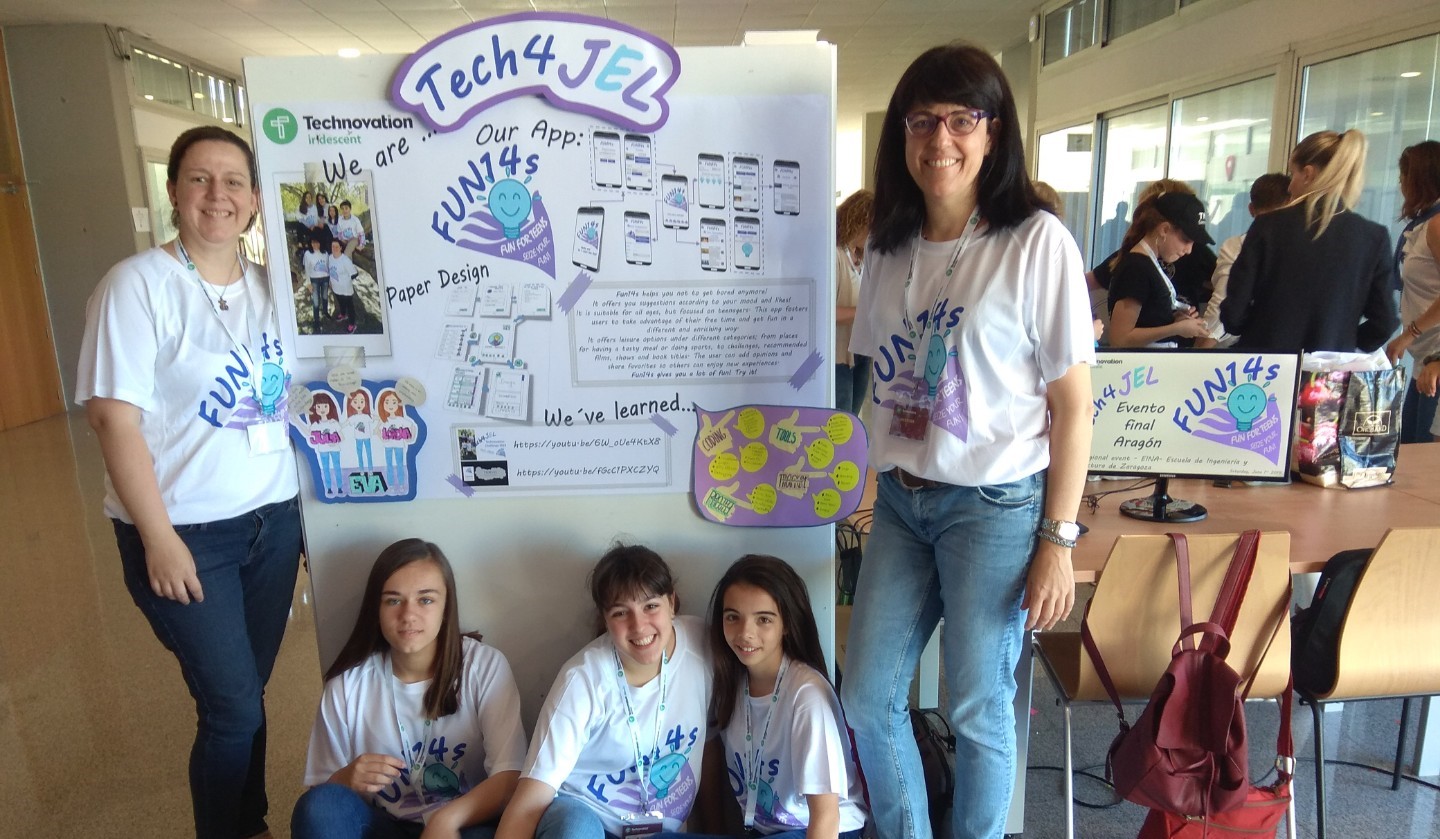On 11 February 2023, the 8th International Day of Women and Girls in Science is celebrated with the goal to promote the full and equal access and participation of females in Science, Technology, Engineering, and Mathematics (STEM) fields. Within LEVIS are many powerful women who move our project forward. One of them is Leticia Gracia Grijota from the Aragon Institute of Technology (ITAINNOVA) in Zaragoza, Spain. In the following interview, Leticia gives an insight into her work and her view of the role of women and girls in science.
Where do you come from and how did you get into science, technology, engineering and mathematics (STEM) and into your specific work field?
I have a degree in Mechanical Engineering since 1996 and a Ph.D. in Computational Mechanics in 2006 from the University of Zaragoza, Spain.
I grew up in a family where engineering was really present. Actually, we are five siblings – four girls and one boy – and all of us engineers! My grandfather and father had a company for designing and building steel structures of various kinds. Since I was a little girl, I could see how much they enjoyed their job and how exciting the structures they built were – buildings, bridges, sports hall, art sculptures … My father’s work seemed amazing to me, and I wished I could do things like him. Also, at school, I was good at maths, physics, chemistry and drawing.
During my studies at the School of Engineering, finite element modelling was a booming method of computation due to the fast technical development of computers and I found it very attractive and powerful. Engineering materials also seem to me to be an amazing world. Fortunately, I had the opportunity to combine both fields in my master’s degree. This was the beginning of my career. ITAINNOVA, in 1996, gave me the opportunity to start as a researcher in the field of predicting the functional behaviour of materials by combining numerical (Finite Element Analysis) and experimental techniques, developing and applying constitutive models for engineering materials. Since then, I have been growing together with a great team of colleagues at ITAINNOVA, working closely for very interesting companies in related topics, which have challenged us to start new activities in the field.
Twenty-seven years have passed since I started in the world of work. It may seem like a long time, but for me, it has gone fast. Engineering is dynamic and does not let you get bored!

Leticia Gracia Grijota
What is your job at ITAINNOVA and what is your exact role in the LEVIS project?
Currently, at ITAINNOVA I am the Co-ordinator of the Technology “Advanced Modelling and Characterization of Materials” leading a group of 25 PhDs and engineers, as well as Project Manager in Technological Area of Materials & Components.
In the LEVIS project, my role is that of project manager at ITAINNOVA, supporting the Project Co-ordinator, the Scientific Co-ordinator and the WP4 Leader, who are part of the ITAINNOVA scientific and technical team working on the LEVIS project.
What is your motivation to work in the LEVIS project?
The LEVIS project is about multi-material solutions using cost-effective and scalable manufacturing technologies that will be demonstrated on different real parts of an electric vehicle and address very challenging objectives about circularity, eco-design and sustainability. It combines a set of cutting-edge technologies heading at very much-needed goals for our planet. In addition, the LEVIS project provides an excellent opportunity to deploy innovative ideas and make them a reality with the synergy between computation and experiments, which fits perfectly with what we can contribute from ITAINNOVA.
Have you realized a change regarding the role of women in science during the last years? What are your expectations and wishes for the future regarding this topic?
Of course, in recent years there have been important changes in the role of women and men in science and other fields.
Today, society is much more aware of the equal abilities of women and men in all areas thanks to the feminist movements, which have been playing a role for years. Stereotypes are being broken and this is very good, especially for children, who are able to see themselves as equal in terms of abilities, regardless of their gender. However, when it comes to STEM careers and women, results are not as satisfactory as expected. In reality, I am not sure that these results are due to girls being afraid of their abilities in maths, physics or chemistry compared to boys, or because they do not have enough female role models to look up to, which are two of the main arguments put forward by pro-STEM policies and movements for women.
Nowadays, information flows quickly and easily and is accessible to everyone and, yet, the number of women is not growing much in STEM fields. While these two arguments are part of the problem, there are more reasons to focus on. I myself work to promote STEM among girls, but many of them consciously refuse to walk that path.
In my opinion, there are several aspects that influence the participation of women in STEM careers in Spain. The Spanish education system, compared to other countries, is too theoretical and descriptive, and these characteristics make it unattractive for people, of any gender, who want to start a STEM career; at school, STEM-related subjects are (unintentionally) considered by teachers to be more difficult than others, unconsciously generating a psychological barrier for children. On the other hand, it is a reality that women are less likely to pursue STEM studies than men under the same information conditions due to the concept of „self-effectivity“, which is related to what an individual thinks about her or his ability for certain skills. In general, women show a low level of self-effectivity as they show a low level of belonging to STEM sectors, just as, on the other hand, men’s interest in health science or education is lower than that of women.
In short, we have come a long way, but there is still a long way to go.
What advice would you give young girls who want to pursue a career in STEM?
My advice would be: If you like it, try it, work hard and decide if you are right!
Do not refuse to do things because of social influence, fashions, stereotypes or whatever, seek information, be honest with yourself, ask for advice from people you trust and go for what you like with determination and enthusiasm.

Leticia Gracia Grijota with the Regional Winners at the Technovation Aragón 2019
